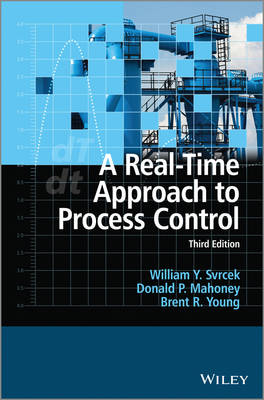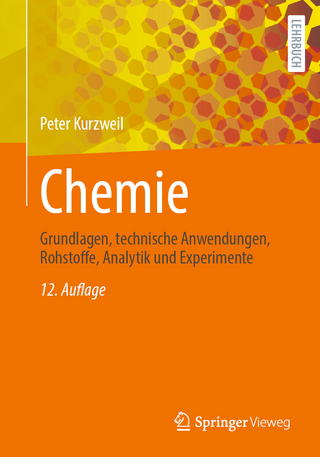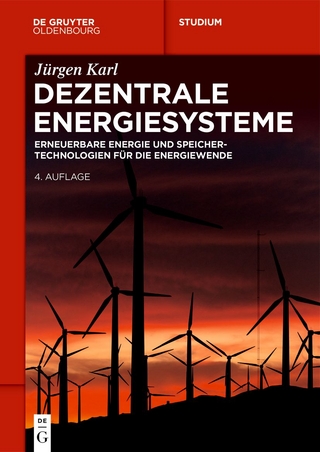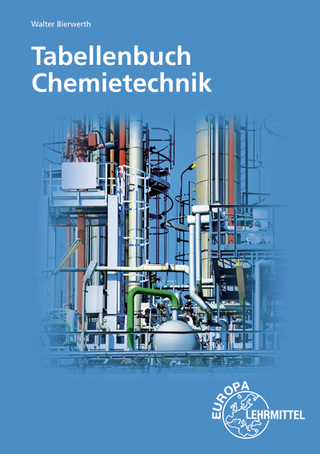
A Real-Time Approach to Process Control
John Wiley & Sons Inc (Verlag)
978-1-119-99387-2 (ISBN)
With resources at a premium, and ecological concerns paramount, the need for clean, efficient and low-cost processes is one of the most critical challenges facing chemical engineers. The ability to control these processes, optimizing one, two or several variables has the potential to make more substantial savings in time, money and resources than any other single factor.
Building on the success of the previous editions, this new third edition of A Real-Time Approach to Process Control employs both real industry practice and process control education without the use of complex or highly mathematical techniques, providing a more practical and applied approach.
Updated throughout, this edition:
• Includes a brand new chapter on Model predictive Control (MPC)
• Now includes wireless and web-based technologies
• Covers bio-related systems
• Details the new multivariable control measure developed by the authors
• Includes PowerPoint slides and solutions to Workshop problems on the accompanying website: http://www.wiley.com/go/svrcek-real-time-3e
From the reviews of previous editions:
“Would appeal to practising engineers due to its “hands on” feel for the subject matter. But more importantly, the authors present these concepts as fundamentals of chemical engineering, in a way that is consistent with how professor teach at the universities.” –Chemical Engineering Process (CEP)
“The book has been beautifully crafted” –Engineering Subject Centre
“Provides a refreshing approach to the presentation of process analysis and control” –The Chemical Engineer
William Y. Svrcek, Department of Chemical and Petroleum Engineering, University of Calgary, Canada Donald P. Mahoney, Chemical Industry Business Solutions, SAP AG, USA Brent R. Young, Department of Chemical and Materials Engineering, University of Auckland, New Zealand
Author Biographies xi Foreword and Endorsements xiii
Preface xv
Acknowledgements xvii
1 A Brief History of Process Control and Process Simulation 1
1.1 Process Control 1
1.2 Process Simulation 5
References 11
2 Process Control Hardware Fundamentals 15
2.1 Control System Components 15
2.2 Primary Elements 16
2.3 Final Control Elements 33
References 53
3 Fundamentals of Single-Input/Single-Output Systems 55
3.1 Open Loop Control 55
3.2 Disturbances 56
3.3 Feedback Control – Overview 57
3.4 Feedback Control – A Closer Look 60
3.5 Process Attributes – Capacitance and Dead Time 66
3.6 Process Dynamic Response 74
3.7 Process Modelling and Simulation 76
References 93
4 Basic Control Modes 95
4.1 On–Off Control 95
4.2 Proportional (P-Only) Control 97
4.3 Integral (I-Only) Control 102
4.4 Proportional Plus Integral (PI) Control 105
4.5 Derivative Action 107
4.6 Proportional Plus Derivative (PD) Controller 108
4.7 Proportional Integral Derivative (PID) Control 111
4.8 Digital Electronic Controller Forms 112
4.9 Choosing the Correct Controller 112
4.10 Controller Hardware 114
References 117
5 Tuning Feedback Controllers 119
5.1 Quality of Control and Optimization 119
5.2 Tuning Methods 123
References 132
6 Advanced Topics in Classical Automatic Control 133
6.1 Cascade Control 133
6.2 Feedforward Control 137
6.3 Ratio Control 140
6.4 Override Control (Auto Selectors) 142
6.5 Split Range Control 147
References 149
7 Common Control Loops 151
7.1 Flow Loops 151
7.2 Liquid Pressure Loops 153
7.3 Liquid Level Control 155
7.4 Gas Pressure Loops 165
7.5 Temperature Control Loops 166
7.6 Pump Control 172
7.7 Compressor Control 172
7.8 Boiler Control 179
References 182
8 Distillation Column Control 185
8.1 Basic Terms 185
8.2 Steady-State and Dynamic Degrees of Freedom 186
8.3 Control System Objectives and Design Considerations 188
8.4 Methodology for Selection of a Controller Structure 190
8.5 Level, Pressure, Temperature and Composition Control 192
8.6 Optimizing Control 199
Section Sidestream 199
8.7 Distillation Control Scheme Design Using Steady-State Models 204
8.8 Distillation Control Scheme Design Using Dynamic Models 212
References 213
9 Using Steady-State Methods in a Multi-loop Control Scheme 215
9.1 Variable Pairing 215
9.2 The Relative Gain Array 216
9.3 Niederlinski Index 220
9.4 Decoupling Control Loops 220
9.5 Tuning the Controllers for Multi-loop Systems 222
9.6 Practical Examples 222
9.7 Summary 232
References 232
10 Plant-Wide Control 233
10.1 Short-Term versus Long-Term Control Focus 233
10.2 Cascaded Units 235
10.3 Recycle Streams 236
10.4 General Considerations for Plant-Wide Control 241
References 242
11 Advanced Process Control 245
11.1 Advanced Process Control 245
11.2 Model Predictive Control 246
11.3 Dynamic Matrix Control 249
11.4 General Considerations for Model Predictive Control Implementation 253
References 254
Appendix A P&ID Symbols 257
Appendix B Glossary of Terms 261
Appendix C New Capabilities with Control Technology Hardware and Software 267
Workshop 1 Learning through Doing 279
Workshop 2 Feedback Control Loop Concepts 283
Workshop 3 Process Capacity and Dead Time 289
Workshop 4 Feedback Control 295
Workshop 5 Controller Tuning for Capacity and Dead Time Processes 303
Workshop 6 Topics in Advanced Control 311
Workshop 7 Distillation Control 321
Workshop 8 Plant Operability and Controllability 333
Index
| Erscheint lt. Verlag | 7.2.2014 |
|---|---|
| Verlagsort | New York |
| Sprache | englisch |
| Maße | 178 x 252 mm |
| Gewicht | 712 g |
| Themenwelt | Naturwissenschaften ► Chemie ► Technische Chemie |
| Technik ► Elektrotechnik / Energietechnik | |
| Technik ► Maschinenbau | |
| ISBN-10 | 1-119-99387-3 / 1119993873 |
| ISBN-13 | 978-1-119-99387-2 / 9781119993872 |
| Zustand | Neuware |
| Haben Sie eine Frage zum Produkt? |
aus dem Bereich


